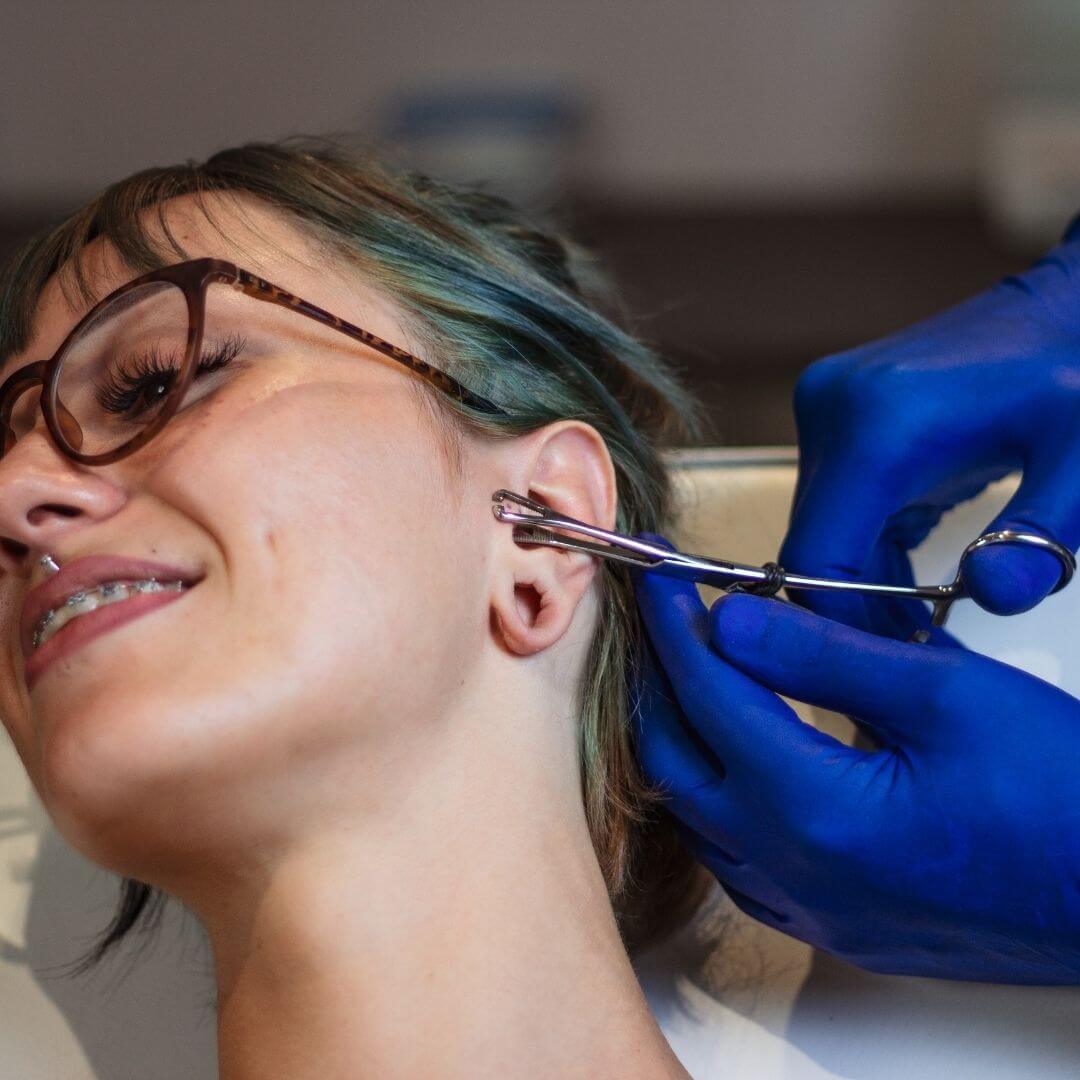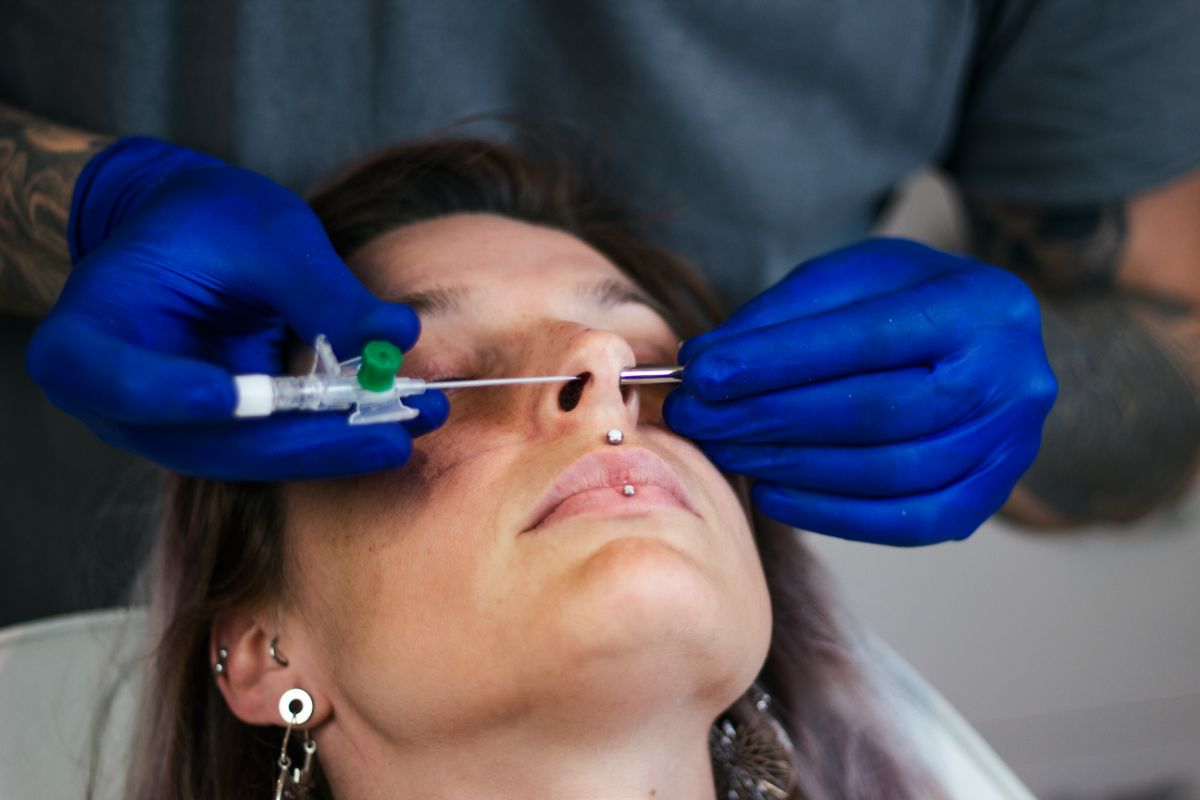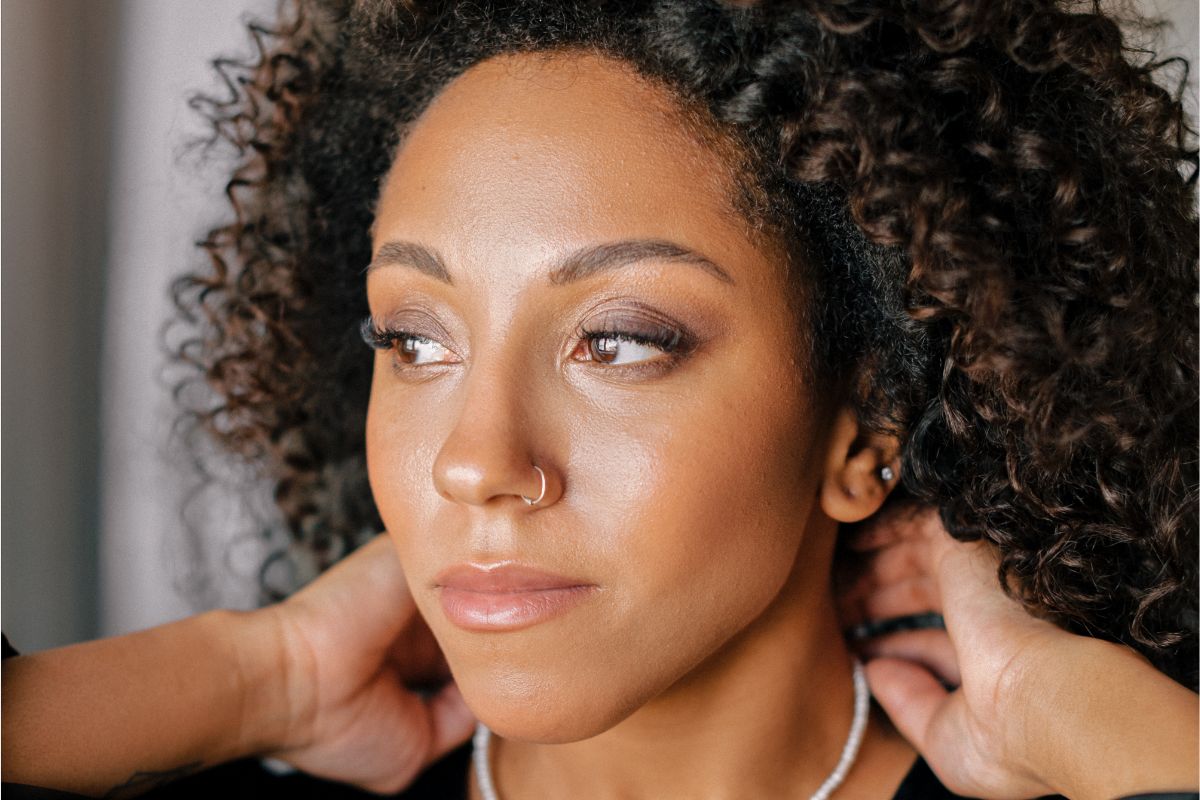Do you know what's trending right now? Look at Rihanna, Beyonce, Keke Palmer, and Ashley Graham and check their piercings. All of them are sporting cartilage piercings. Naturally, people have been scrambling to follow suit ever since celebrities started flaunting their piercings.
We're not going to deny cartilage piercings are one of the hottest piercings today. But just because it looks nice doesn't mean you should go for it without doing your research. So we highly encourage you to read about cartilage piercings before you get your ears jabbed.
Getting your ears pierced comes with responsibilities. If you truly want it, you must stay committed to following all the instructions given by your piercer to ensure that your cartilage piercing will remain infection-free throughout the healing process.
If this is your first time getting a cartilage piercing, we're sure you have a lot of questions in mind, like, is it going to hurt? How long is it going to heal? Doing your research is an essential part of the piercing process, so you can decide if it's the kind of piercing you want for yourself.

Here's What to Expect If You're Getting A Cartilage Piercing.
#1 Being Nervous Is Normal
It's completely normal to experience anxiety and fear before getting your ears pierced. Research shows that if you know what to expect, it will somehow ease your worries.
Before diving in, we suggest you do your research well. Find a good and reputable piercer to do the job. Read reviews and feedback, so you'll know if you found a good one. A skilled piercer will know what tools and techniques to use to give you a comfortable experience and a successful outcome.
Some piercers prefer to use needles, while others a piercing gun. Asking what is best for your case and understanding its reason will help keep you calm and at ease during the process. Don't be afraid to ask questions. Knowing what's going to happen from start to end can help you feel relaxed.
#2 Eat Well, Drink Well but Don't Drink Alcohol
Some people like to skip meals when they're anxious, while others prefer to have a glass of wine to keep them relaxed. Doing any of these before the big is a big no-no.
You must nourish your body before the procedure. Get enough sleep the night before the procedure, and make sure you eat a full meal before going to the studio. Professional piecers also recommend you bring a snack that's rich in vitamin C, as this helps speed up the healing process.
Drinking alcohol before getting pierced will cause you to bleed more. In addition, it will impede the healing process. There's also a possibility that you could pass out during the piercing process. Alcohol can dehydrate your body and compromise blood circulation, which is essential in healing.
#3 It's Normal to Hear a Crunch Sound When a Needle Is Used
Since your cartilage is tough, your piercer will use a very sharp and hollow needle to puncture the area precisely and efficiently. The jewelry is inserted through the end of the needle.
Although piercing guns are popular, they are not recommended for cartilage piercings because they can cause permanent tissue damage. Make sure you ask your piercer what tools he uses. If it's a gun, you're better off finding someone else.
#4 It Will Sting Your Ear
We're not going to lie; you will experience some pain, but the intensity will vary depending on your tolerance and threshold. However, the pain is bearable. Otherwise, no one would risk getting a cartilage piercing. It's also normal to experience swelling on the site. The swelling is usually accompanied by a dull, aching pain. You can reduce the pain by taking over-the-counter painkillers.
#5 Healing Is Not Instant
The major difference between an earlobe piercing and a cartilage piercing is that the latter takes a while to heal. This is because the fleshy part of your ear, aka the earlobe, receives good blood flow, which is integral for healing.
The average healing time for earlobes is between 3 to 6 months. Meanwhile, cartilage piercings can take up to a year to heal. While waiting for the healing process to complete its course, you should continue cleaning and caring for your piercings.
#6 Don't Be Quick to Change the Jewelry
You probably already shopped for a jewelry for your cartilage piercing and couldn't wait to replace the initial jewelry with the jewelry of your choice. Unfortunately, this is not recommended unless there's a problem with the material or the size. Otherwise, you can only change the jewelry when it has already healed.
You'll be wearing the initial jewelry for one year. If you change the jewelry too soon, you'll disrupt the natural healing process, and there's a possibility that your body might reject the piercing or that it will get infected. If you're not sure if the site has healed, you can meet with your piercer and let him evaluate the piercing.
If your piercer gives you the go signal to change your jewelry after a year, you can go with a piece of jewelry that's made of 18 or 24 karat gold, titanium, stainless steel, or niobium. These materials are safe to use because they are nickel-free.
#7 Sleeping Is Going to Be a Struggle
If you like to sleep on your side, this will be a great challenge for you because, during the healing process, you'll be asked to sleep on your back so as not to put pressure on your ears. Going back to your old sleeping position after getting a cartilage piercing can cause irritation and the swelling in your ears to worsen.
To help keep your new piercing protected, professional piercers recommend you use a clean T-shirt and place it over your pillow. Turn the pillow every night so that bacteria will not travel to your piercing.
#8 Piercing Rejection May Be Possible
You've spent money, time, and emotions over your new piercings, but just because you love them doesn't mean your body will too. There will always be a possibility that your body may reject the new piercings.
It could be because you're allergic to the metal of your initial jewelry (apparently, many people are allergic to nickel, which is why titanium is more preferred), migration, infection, or incorrect piercing placement. Cartilage piercings are also prone to hypertrophic scarring.
Studies show that out of all types of body piercings, cartilage piercings have the highest infection rate. The best way to prevent infection is to keep your piercings clean at all times, monitor the site and the healing process.
What will you do if you notice a bump in your piercing? Are you going to dismiss it and hope it will go away? A bump in your piercing is a clear sign of infection. When you see it, let your professional piercer know about the bump immediately.
An infection doesn't resolve on its own. In fact, without treatment, it will only get worse. Scarring can be prevented if it is discovered early, but if the piercing is migrating, you have no choice but to have it removed. Also, if you experience vomiting, develop a rash, intense pain, or fever, you should call your doctor right away.
#9 Piercings Can Be Addictive
If there is one thing people with piercings have in common, it's insatiability. Once you see your piercings heal, you'll be itching to get a new one. We've seen it happen one too many times.
People can't get enough of body piercings. After you've successfully completed the healing process, you'll be ready to go through it all over again because of the results.
#10 Keep Your New Piercing Clean at All Times
One of the most essential steps in ensuring that your new piercing will heal well is if you clean it as instructed by your piercer. The solution you'll clean it with matters because things will head down south if you use the wrong product.
The ideal solution for body piercings is saline solution. You can purchase pre-packed saline solutions in your local drugstore. Clean the area with the solution using a cotton bud or pad two times a day.
Avoid touching your piercing, especially if you haven't washed your hands. Dirty hands can cause bacteria to infiltrate the area and cause an infection.

Are You Looking for a Safe Saline Solution Product For Your Piercings?
If you're looking for a safe product to clean your piercings, Dr. Piercing Aftercare can help.
At Dr. Piercing Aftercare, we've developed convenient medicated swabs that you can use to clean your piercings and keep infection away. We are proud of our products. They are made and tested in a cGMP compliant and FDA-registered facility in America.
We use advanced technology on our swabs for easy application. Each pack contains thirty-six medicated swabs that are proven and tested to promote your body's natural healing process while preventing infection. Contact us today, or you can check out our website to learn more about our products.





